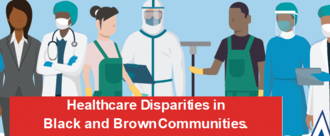-
Modify Hawaii requirements for travelersExplanations for each request: 1. Designated Government Run Quarantine Facilities: On several social media travel groups, people planning to travel to Hawaii have openly stated they will not test as, if they test positive, they may have financial loss (deposits for vacation). Instead, they plan to “quarantine”. There are some realizing that, if enough people opt to “quarantine” at their accommodation, the state of Hawaii will be unable to enforce the 14 day mandate. The state will have to spend money enforcing and chasing down quarantine breakers OR running a designated quarantine location. Our tax money is better spent on a designated quarantine location. This will be more efficient in controlling the spread of COVID-19 and will better keep our residents and kupuna safe. Also this will further encourage people to get tested before they travel. In addition, if a traveler is opposed to testing for fear of positive results and possible financial impact, or because they are hard-headed and don’t like to follow rules then these same people will have little regard for the safety of our residents. Therefore it is unrealistic to assume they will respect quarantine rules and orders. Finally, this would give locals who live here and are returning an easy way to get tested here instead of in another state. We would also prefer that returning residents who are concerned they may be bringing the virus back to their family be given the option to stay in quarantine if they request. This infrastructure would give the residents of Hawaii more control and will decrease the chance of COVID19 spread from travelers. 2. Require 2nd test: While there is no full proof way to allow travel and prevent COVID19, this would at slow and mitigate the spread of infection by catching some of those that were infected during travel. 3. Mandatory Quarantine for travelers from hotspots: There is a much greater likelihood that people from areas that are currently having significant outbreaks will be carriers of COVID-19. If their own states and cities are not allowing them to dine out, and do recreational activities. Why would we allow them to put our community at risk by coming to Hawaii to do those things? We should not have to pay the price of another community’s outbreak.2,238 of 3,000 SignaturesCreated by Cara Flores
-
Supplemental Unemployment Must Continue! - Steady Data Shows 25% of its Members w/ 100% Income LossWe are scared, we are angry, we are humbled. We want to contribute, we cannot contribute. We want to have jobs soon, we will not have jobs soon. We didn't ask for this crisis, we didn't know this could happen, we weren't in a position to prepare. We need our system to help at this time where we need help more than ever. We cannot take care of our own? We are your Parents, your Grandparents, your Children, your Grandchildren, your Aunts, your Uncles and your Cousins. We need your help. With COVID infection rates increasing across much of the country and the high potential for at least a future second wave prior to the onset of mass vaccinations, July 31st will not mark a magical date where job availability will all of a sudden rocket upwards. Demand across numerous industries that employ large numbers of workers remains near or at their bottoms and people are still scared to go back to work, facing an internal crisis of consciousness between the need to provide for their families and the need to not put themselves or their families in harm’s way.12,249 of 15,000 SignaturesCreated by Adam Roseman
-
Calling to BOOT Rep. Tom Tiffany of WisconsinTom Tiffany is not a team player! He is concerned about Tom and what Tom wants ONLY. It is time to get rid of Toxic Tom and protect Wisconsinites. It is time to show FULL Support for the Governor Wisconsinites elected. It is time other politicians respect and work with the man WE the Citizens of Wisconsin elected. Mr. Tiffany is only one example of those who refuse to work with officials that Wisconsinites elected. This is unsafe for Wisconsin. We need a government that works together for it's citizens.686 of 800 SignaturesCreated by Mary Hoefs
-
Congress: Cut the Pentagon BudgetLast year’s $746 billion Pentagon budget was the largest on record — and came at the expense of critical public health, education, and infrastructure spending. And while Congress still can’t agree on extending emergency assistance for families in the face of COVID-19, they’re gearing up to greenlight even more — three quarters of a TRILLION dollars — for the Pentagon this year. Money isn’t everything, but budgets are moral documents that reflect our priorities. And Congress’s priority appears to be funding redundant nuclear weapons, multi-billion dollar off-books spending accounts, and endless wars in the Middle East. No more. Congresswoman Barbara Lee has introduced bold new legislation calling for a $350 BILLION dollar cut to the Pentagon budget. It’s up to us to follow her lead and get Congress on board to shift astronomical funds away from the Pentagon and build true safety and security. Add your name to urge them to pass H. Res. 1003 NOW!327 of 400 SignaturesCreated by Win Without War

-
Stop Illegally Inflated Property Taxes in DetroitIt's not just COVID and police brutality exposing racism in America. Black homeowners in Detroit are being overtaxed on top of these other injustices. We’ve all seen headlines about Detroit homeowners being overcharged $600 million dollars in property taxes. No community should be hit with such unjust bills and least of all a city with 40 percent of residents struggling in poverty. Detroit has one of the highest property tax foreclosure rates of any city since the Great Depression. A recent University of Chicago study shows that, even after Mayor Duggan tried to fix the problem, the City is still overcharging the lowest valued homes. These are deep, systemic problems that a task force should investigate, propose solutions to end the practice and help make the community whole. Governor Whitmer has proven that she can get the job done with COVID and is with us in the movement against police brutality. Now it's time to do the same for property tax injustice. We call on her to create a task force to investigate and stop unfair property tax practices and keep Detroit homeowners in their homes. Sources: https://harris.uchicago.edu/files/evalrespropertytaxasdetroit20162018.pdf https://scholarship.law.uci.edu/ucilr/vol9/iss4/3/ http://www.californialawreview.org/print/predatory-cities/#_ftn18 https://www.nytimes.com/2020/06/11/opinion/coronavirus-cities-property-taxes.html1,112 of 2,000 SignaturesCreated by Coalition for Property Tax Justice
-
Stop Healthcare Disparities in Black and Brown CommunitiesAmerica faces an emergency on three primary fronts: a public health pandemic, economic insecurities, and long-standing structural and institutional racism. Working families need job security, economic stability, and freedom from systematic oppression. That is, we must address the racial barriers from COVID-19 and the racial oppression that African Americans and people of color are facing. Furthermore, we must stress the importance of the HEROES Cares Act. So, please sign on and join us for this tel-town hall Wednesday, June 24th, at 6:30 pm, for the tel-town hall call-in number (866) 976-6355. Speakers for this event will be NC Senator Erica Smith-Ingram Dr. Michelle Laws- Department of Health and Human Services Fayetteville Mayor Mitch Colvin Action NC member Tarsha Gunn173 of 200 SignaturesCreated by Gloria De Santos
-
Protect our Magic Makers: Don’t Open Theme Parks Until it’s SafeWith the recent spikes in COVID-19 cases in Florida, the plan to re-open theme parks should be re-evaluated. The state’s proposed plan for re-opening theme parks would start at Phase 2, “after the successful conclusion of Phase 1, which includes a downward trajectory…this will occur when there is no evidence of a rebound or resurgence of COVID-19 cases.” Because of the increase in cases suddenly, it is clear that theme parks – a non-essential business – should not be planning to operate until the cases have gone down again. The recent spike of COVID-19 cases is concerning due to our proposed opening in July. With a record high of 4,049 new COVID-19 cases in a single day on June 20, 2020, we are now backtracking from where we originally were. Retreating back to an earlier Phase in re-opening is our best option at not exposing the virus to thousands and thousands of theme park employees and their families. As individuals who work in the bustling tourism industry in central Florida, we are responsible for ensuring the safety of our guests and our fellow magic makers. Keeping ourselves and our visitors safe is our number one priority, in every theme park. This includes our health and wellbeing. We are encouraged to say something when we see something that we deem is unsafe so we’re speaking up. This virus is not gone, unfortunately it’s only become worse in this state. Having our theme parks remain closed until cases are steadily decreasing would keep our guests, our employees and their families safe. Re-opening the theme parks is only putting our guests, employees, and families at higher risk for contracting COVID-19. While theme parks are a great way to relax and enjoy free time, it is a non-essential business; it is not fair to the people who work there to risk their lives, especially if they are at risk or have family members who are at risk. People are more important than making a profit. Mayors, Theme Park Executives, Government Officials - please hear what we are saying. shorturl.at/bCENX https://rb.gy/limuqd20,512 of 25,000 SignaturesCreated by Concerned Cast Members
-
A Petition for Anti-Racism Action by Survivor Entertainment GroupSurvivor has produced 40 successful seasons over 20 years by telling the stories of people who represent a wide array of human experience within the context of a game of social strategy, physical challenges, and survival. Representation matters. One of the most important ways we can embrace our diversity and evolve is to represent that diversity responsibly, equitably and fully. A commitment to the afore-mentioned actions would have a huge impact and move us toward a more fair, just, and equitable society.8,468 of 9,000 SignaturesCreated by J'Tia Hart, The Soul Survivors Organization
-
Tell the AFL-CIO to Drop the CopsAs musicians committed to fighting racial and economic injustice, we will no longer stand idly by and allow police unions to protect police officers who murder Black people and fellow workers. Police unions across the nation largely continue to condone the same policing tactics that led to the murders of George Floyd, Breonna Taylor, Tony McDade, Philando Castile, Eric Garner, Sandra Bland, Tamir Rice, Botham Jean, Freddie Gray, and countless more Black lives. Many musicians and AFM members are using social media platforms to listen to the voices of Black activists and amplify them. In addition, many are actively engaging in peaceful protest–using their voices, instruments, and talents to uplift not only the names, but the platforms of anti-racist movements such as Black Lives Matter. This is only the beginning of the work we must do to actively build anti-racist practices within our community. Background: In 2017, Philadelphia Police Union President John McNesby said of Black Lives Matter protesters: “When you go to work each day, you shouldn’t have to worry that a pack of rabid animals will suddenly show up at your home and openly threaten your family,” McNesby said. “These are not activists, they are racist hate groups determined to instigate violence.” This is a prime example of Police Union leadership disrespecting and undermining the values and work of anti-racist activists, many of whom are also members of the AFM. Under the protection of police union bylaws, many predatory officers are able to escalate situations, intimidate, injure, and kill unarmed citizens with impunity. This environment makes it unsafe for Black musicians and members to organize at the workplace, at home, and travel to/from performances. The actions of police officers and their unions have made it clear that they are not treated as traditional workers and thus have no place in the Labor Movement. The history of the AFM includes decades of inaction against racial injustice. Many Union Locals represented by the AFM across the nation were forced to integrate Black and White union musicians by court order, with the signing of Civil Rights Act legislation. Despite this history, the AFM and its members have made considerable amounts of money performing, and–at times–appropriating Black American music and Black culture, especially in its legacy contracts such as Broadway, festivals, club dates, live TV, and film scoring. It is easy to conclude that the AFM’s livelihood depends on Black American Music, therefore it is of the utmost duty for the AFM to defend Black American lives. We appreciate the recent statement by Ray Hair pledging “to continue to confront the ways our union and the music industry have contributed to persistent systemic racism” as well as the work done by the AFL-CIO in support of racial justice, including calling for police reform and the resignations of the Secretary of Defense, Chairman of the Joint Chiefs of Staff, and President of the Minneapolis Police Union. However, as musicians we must truly come to terms with our own history, ask our Union to do the same, and move forward together by taking direct action. The American Federation of Musicians must show the world that it is invested in the beliefs of its membership and committed to becoming an actively anti-racist union. Calling on the expulsion of police unions in the Labor movement is a essential step to begin this work.348 of 400 SignaturesCreated by MusiciansFor RacialJustice
-
Full transparency of the Federal GovernmentThis is our taxpayer money, our money funded the program and the program should be accountable to us. Taxpayers are entitled to this public information and Secretary Mnunchin promised full transparency. The Washington Post's Catherine Rampell made a compelling case this morning that with "a half-trillion dollars of our hard-earned cash" in question, taxpayers should be asking, "What are they hiding?"1,214 of 2,000 SignaturesCreated by Wes Hart
-
The Maui Sanctuary strategy for full, safe employmentSanctuary Maui means zero infections coming to Maui, while the hotels are full, the economy is running and people are working. Let me end with a sincere appreciation for your great work. You have protected our lives and our islands through your determination, your wise guidance, and your sleepless nights. Nobody could have imagined that we could get that close to eradication of the virus. Let's grab that opportunity while it is there, follow New Zealand's example, and create Sanctuary Maui. https://www.facebook.com/mauieconomy23 of 100 SignaturesCreated by Chris Mentzel
-
DO SOMETHING about coronavirus ravaging our communitiesSARS-CoV-2 is ravaging our communities. It is highly infectious and it is spreading like wildfire. Our hospitals are filling up and resources are scarce. It is our government’s responsibility to ensure our safety, and something must be done to prevent further deaths in our communities.1,462 of 2,000 SignaturesCreated by Chloe Ramsey












